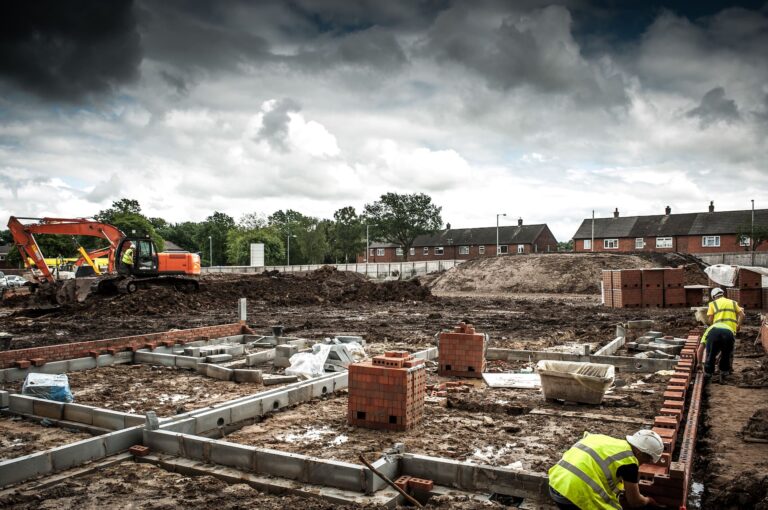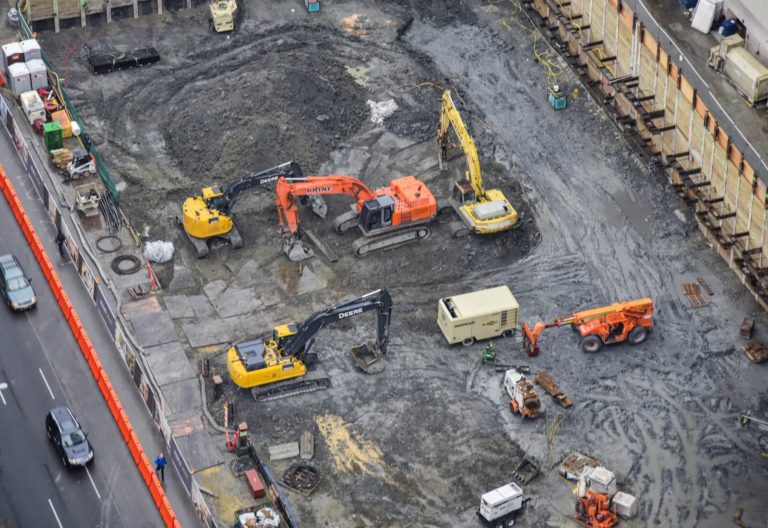Trade Pay Rates in 2022: Too low, or just laughable?
Everyone wants value for money. Whether you’re buying a house, a car, or even going out for a meal, value for money is always a top priority. In 2022, when the cost of everything is soaring, that’s never been more true.
But there’s a difference between getting good value, and trying to pay less than something is worth. The old saying is true: you get what you pay for.
When it comes to paying your tradespeople, if you’re not willing to pay for quality, you’re not going to find quality trades willing to work for you. It really is that simple. Even though most tradespeople blame construction agencies for low pay rates, in reality, it’s the end clients that determine how much they are willing to pay for a worker.
Why pay higher rates if you can get away with paying less?

If you’ve managed to get away with paying your trades less than the going rate, there are probably a few things you’ve noticed:
- you never employ the same traders twice
- you’ll have suffered from a high staff turnover
- you won’t be a popular choice for traders (believe us, word spreads quickly in construction)
If you’re looking for qualified and experienced workers who really understand their craft, you have to pay them what they’re worth.
What are the average rates for tradespeople?
As with any industry, the more experience a worker has, the more they should be paid. But the average rates for tradespeople vary depending on the skills required as well as the job itself. For example, some roles have a higher risk factor than others, and some projects will take a lot longer to complete.
Timing and as such, demand, is another factor that will affect trade rates. According to The Construction Index, since the start of the pandemic in 2020, average rates for tradespeople have increased by 20%. The end of lockdown led to a spending spree on refurbishments and building projects, and skilled tradespeople were more in demand than ever before. Inevitably, when demand is high for the tradespeople you need, the rates will be driven up too.
With that in mind, projects are usually costed individually, but there are some ballpark figures you can use to estimate the day-rate of your workers.
Average Day Rates for Builders
A quick google search will tell you that builders can earn between £120 – £280 per day. An estimate for Cardiff will suggest a rate somewhere in the middle, of between £130 and £240. Initially, these figures seem incredibly wide-ranging, but when you start to list the considerations for each worker and each job, it becomes clear that it’s difficult to give an exact figure.
For each worker you need to consider their qualifications, previous experience, site experience, and training. For each project you have to think about the skill level required, duration, location, and size of the team.
Average Day Rates for Labourers
Similarly to builders, the day rates for labourers can be anything from £80 a day to £160. But of course, you still need to consider the skill level, experience and project specifics before landing on a suitable rate for the role you’re trying to fill.
Average Day Rates for Electricians
Considered a highly skilled role, an electrician’s daily rate can begin at £240 but has the potential to go up to £440. Without understanding the full scope of your project, these figures can only be taken as estimates.
In the examples above we’ve considered the day rates for each trade, but depending on the length of the project, you may need to consider hourly rates (which can be equally as varied). Regardless of whether you engage workers on a daily or hourly rate, it’s important to remember that the quality of work you want to achieve is unequivocally linked to the rate you agree to pay.
How has the rising cost of living affected trade day rates?
The cost of living crisis is fuelling the need to pay workers the rates they deserve. In 2022, prices are continuing to rise while wages fall, and the construction industry must step up to the mark and pay workers decent wages.
It’s easy to see why so many construction workers are rejecting jobs offering low pay. It’s become a necessity rather than a choice, and quite frankly, offering workers less than average is an insult.

If you’re keen to move forward with your business and engage committed workers, P.I.E.R can advise you on paying the right rates to attract professional workers to your project.
How much does an agency add to a worker’s day rate?
Within construction recruitment, agencies are often seen as the ‘bad guy’. Workers and clients assume agencies place profit margins above all else, and that’s why clients pay more, and workers get paid less.
In reality, once construction agencies have completed the required checks, adhered to the legislation, and recruited suitable workers for each job, there’s simply no room for extortionate profit margins.
What are construction recruitment agencies responsible for?
Construction recruitment agencies are responsible for sourcing and recruiting the right workers for the right projects. They’re also responsible for sorting out a worker’s holiday pay, pension, national insurance contribution and apprenticeship levy. Often, agencies will also offer workers training opportunities too.
Of course, as with any business, construction agencies must make a profit to survive and an agency markup fee is included in any client charge, but for a good agency, being sustainable is key. Without paying workers good wages, and offering clients good rates, an agency simply won’t survive.
Paying low rates is bad for your business
The wage you’re willing to pay for your workers is a quick way for workers to determine whether or not they’ll engage with your project. You may be offering a wage to one person, but that doesn’t mean you’ll only be judged by that individual. Social media has made connecting with other construction workers easier than ever before, and it’s not difficult to find a community of workers who are looking for the same roles and projects.
Now, more than ever, word spreads fast among construction workers, and workers are never afraid to vote with their feet.
‘It takes 20 years to build a reputation and five minutes to ruin it. If you think about that, you’ll do things differently.’
Warren Buffet
In life, we’re often more likely to shout loudly about a bad experience than we are a good one, and wages are no different. Paying your construction workers a fair wage may mean your name crops up far less on social media sites, but it’ll also mean you’re very unlikely to be blacklisted by workers.
Pay and professionalism are connected
As discussed within our pay rates section, the rate you pay is inherently connected to the quality of trade you’ll receive.
Experienced Trades must be paid more
Understandably, a trade straight out of college or school will be willing to accept a lower pay than a worker with 20 years of experience. The greater the skill, the greater the pay, and ultimately, the better the quality of labour.
Complex Jobs need higher wages
It’s unrealistic to set a flat cost for each trade. Even within one project, the complexity across a site could vary dramatically, and you can’t offer the same wage for very different levels of difficulty.
Locations have to be considered in wages
The same role in any industry can have a totally different wage depending on where the job is located. For example, jobs in London will often come with additional incentives such as a living allowance, because everything in the capital is more expensive. So if you’ve got identical projects in London and Cardiff, you can’t simply cut and paste the wages.
Paying well will mean you retain tradespeople for longer
Paying fair wages will help you attract committed workers. You can avoid continuously recruiting new trades, and shift your focus into developing new business instead.
How can I find the right construction workers for my project?
For many businesses, paying fair rates isn’t the real issue – they’re already willing to pay good wages for skilled workers. Instead, the problem is finding the right workers for your project. Even if workers can list skills and qualifications that match your requirements, it doesn’t mean they have experience of working in the right environments.
Despite often being dismissed as unnecessary within the construction industry, an up-to-date CV can be a brilliant way to dig deeper into a worker’s experience, and see their skills in context.
Discovering the location of previous projects can also help you understand the rates each worker will be expecting, and help to ensure you secure a committed workforce.
At Pier, we can help you understand market rates for your area
As a business owner, we know you don’t have time to trawl through payroll statistics to find average rates for each trade. We understand that your focus is your project. Our focus is helping you complete your projects to a high standard, within your time frame, and with a skilled workforce.
As a construction agency, it’s key for us to stay on top of market rates by location, by project, by experience, and by trade. In making sure we are ahead of the curve, we can advise our clients on the best wages to pay for the workers they need, and we can continue to engage workers who are the right fit for our client’s projects.
We want to push for better standards in the construction industry, and we know that cheap labour is damaging to both workers and clients.
Cheap labour isn’t good, and good labour isn’t cheap.
If you want to benefit from engaging committed and quality trades who will finish your project to the standard you need – without going over your time frame – come and have a chat.
Let us help you
Reference
- https://www.theconstructionindex.co.uk/news/view/skilled-labour-rates-rise-a-fifth-in-a-year
- https://householdquotes.co.uk/tradesmen-labourer-costs/ and https://www.priceyourjob.co.uk/tradesmen-day-rates/.
- https://gosuperscript.com/blog/tradesmen-pay-rates/
- https://householdquotes.co.uk/tradesmen-labourer-costs/ and https://www.priceyourjob.co.uk/tradesmen-day-rates/
- https://householdquotes.co.uk/tradesmen-labourer-costs/
- https://www.theguardian.com/business/cost-of-living-crisis











